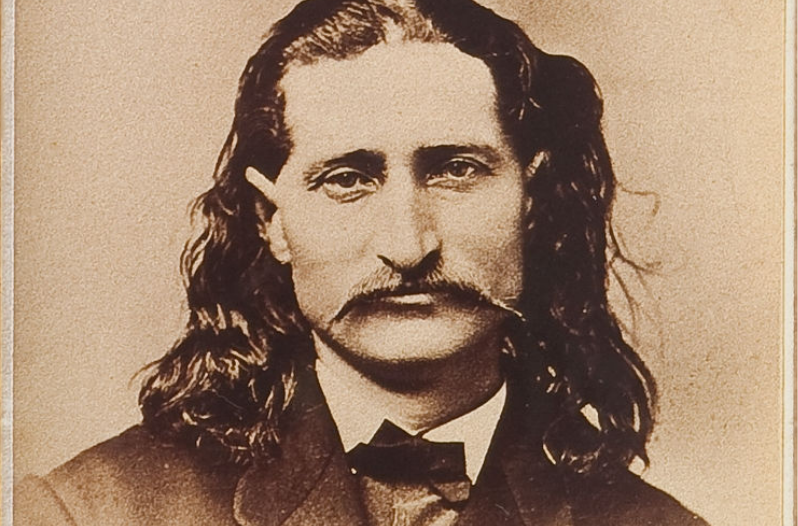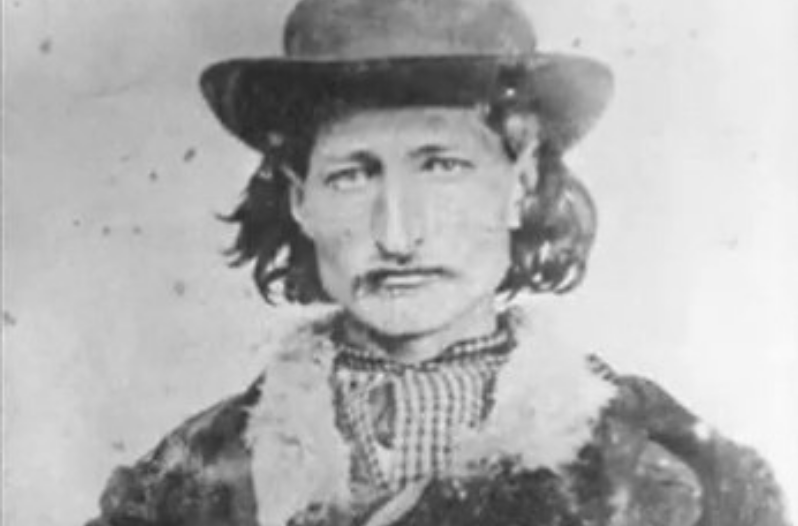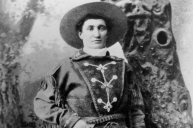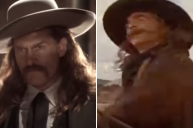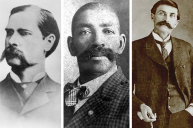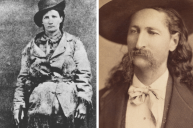James Butler Hickok, better known as "Wild Bill Hickok" may be one of the most well-known names in the history of the Wild West. While there are many legends behind the name, he was quite a real person and led an extraordinary life full of adventure. You can't tell from the pictures, but he was also a redhead. Possibly the most famous ginger of the Old West?
Videos by Wide Open Country
Hickok was born on a farm in Illinois, on May 27, 1837, in present-day Troy Grove. His father, William Alanzo Hickok, was a passionate abolitionist, and the rumor is he used the family house in the Underground Railroad.
Hickock's father passed away when he was just 15 years old. Hickok left home when he was 18 and found himself in the Kansas Territory.
I bet you're wondering how we somehow got from James to "Wild Bill." Well, it started with the initial nickname of "Duck Bill" because Hickock had a large nose and lips. I guess that stuck. During Hickok's time in Kansas, he was elected as a constable of Monticello Township, where he worked for a couple of years before moving on to work for Russell, Majors, and Waddell freight company. It was during this job when he was transporting a freight team from Missouri to Santa Fe that a bear mauled him.
You read that right. Somehow Hickok was able to survive a bear attack. He suffered some severe injuries because the bear crushed him, so he was sent to work as a stable hand to recover in the Nebraska Territory at Rock Creek Station, whose land was owned by David McCanles. Things got ugly when he showed up at the station to demand an overdue payment. It's unclear how it went down, but McCanles was threatening the station manager, Horace Wellman, and either he or Hickok ended up killing McCanles. It's thought that this is most likely the first time Hickok ever killed someone.
After being tried in court but believed to be acting in self-defense, Hickok gave all of the money he had to McCanle's widow before leaving town. $35, to be exact.
Read More: Cowgirls, Outlaws and Gunslingers: 10 Women Who Ruled the Wild West
By this point, the Civil War was in full swing, so Hickok joined the Union Army (remember that abolitionist upbringing) in Missouri. For some unknown reason, he was discharged after a year, so he decided to join Jim Lane's Free State Army (also known as the Jayhawkers antislavery army). It was during this time Hickok first met Buffalo Bill (William Cody at that time), who was working as a scout. He hopped around, also working as a scout for General John B. Sanborn but ultimately decided to go to Springfield to take a break and gamble.
Here's where things start picking up with the Wild Bill legends we've all heard. He gets into a duel with Davis Tutt over unpaid gambling debts, women; you name it. Tutt won an old watch from Hickok, and it really set him off when he saw him wearing it around town. The two decided to settle it in Springfield's square, where they had the first quickdraw duel ever recorded. Hickok won, killing Tutt in one perfect shot. Somehow he was able to get a jury to acquit him, and the legend of Wild Bill was born, mostly as a result of journalist George Ward Nichols writing a fluff piece in Harper's New Monthly Magazine.
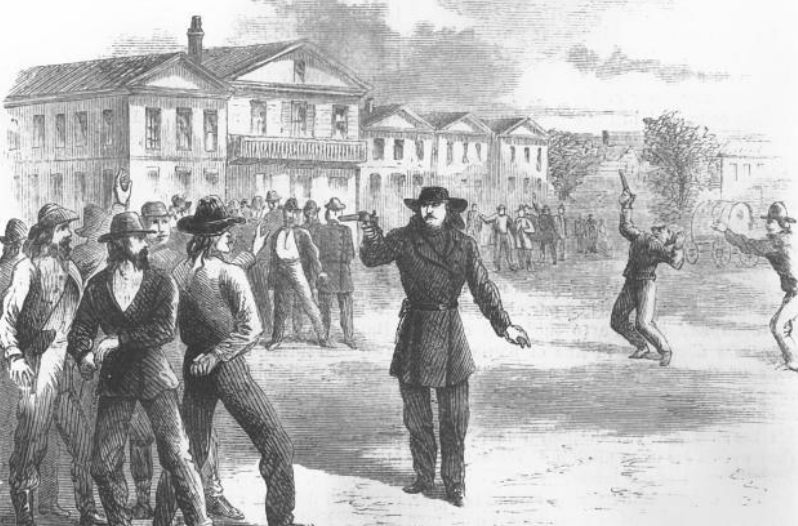
Illustration of the shootout from Harper's New Monthly Wikipedia
The article reported that Hickok had killed hundreds of men with other fictitious exploits. After losing the election for the city marshal of Springfield, he moved on to serve as deputy federal marshal in Fort Riley, Kansas. It was here Hickok served as a scout for General George Custer during the Indian Wars. It was here he tried to put on a wild west show, The Daring Buffalo Chasers of the Plains. Unfortunately, it was a bust, and some of the buffalo he had in the show got spooked by a gunshot and trampled some audience members. That'll do it.
After some more work as a scout, Hickok eventually was elected as a lawman. He was City Marshall of Hays and sheriff of Ellis County, Kansas. After killing multiple people during his position, he wasn't reelected and moved onto Abilene, Kansas. He definitely made his rounds around the state.
In the early 1870s, Buffalo Bill Cody and Texas Jack Omohundro invited Hickok to join their troupe and spent the next few years using his gun skills to bring him fame across the plains. He ended up looking for different means for work because he was suffering from glaucoma and started gambling again.
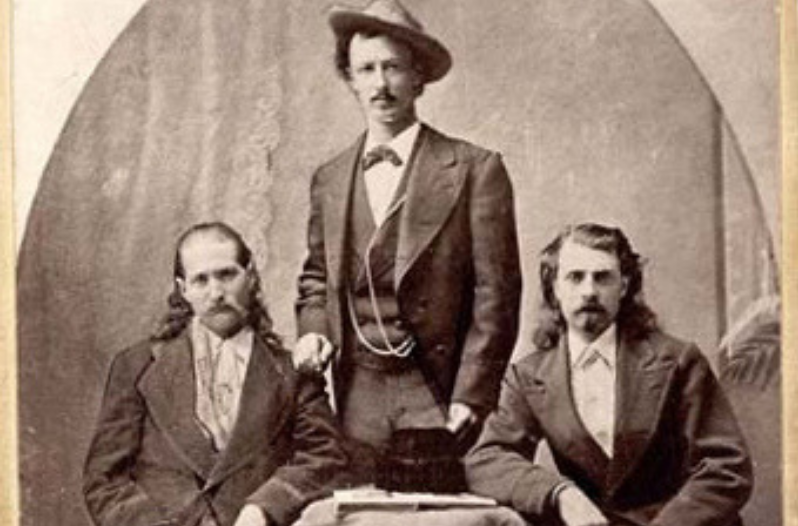
Wild Bill with Buffalo Bill and Texas Jack Wikipedia
He married Agnes Thatcher Lake, a circus owner in the Wyoming territory, before moving on to seek gold in the Black Hills of South Dakota. It was here in Deadwood that it's believed that he was linked to Calamity Jane (at least according to her memoirs). Jane claimed they were married, but this has been unsubstantiated. Who knows what happened between them, but it's fun to think that these two wild west legends were romantically connected.
In Deadwood, Hickok was a regular poker player at Nuttal & Mann's Saloon. With his back turned to the door, Hickok was playing a hand of cards on August 2, 1876. A young man named Jack McCall walked in and shot him dead right in the back of the head. His hand of cards became known as "the dead man's hand,"; a pair of black aces and a pair of black eights.
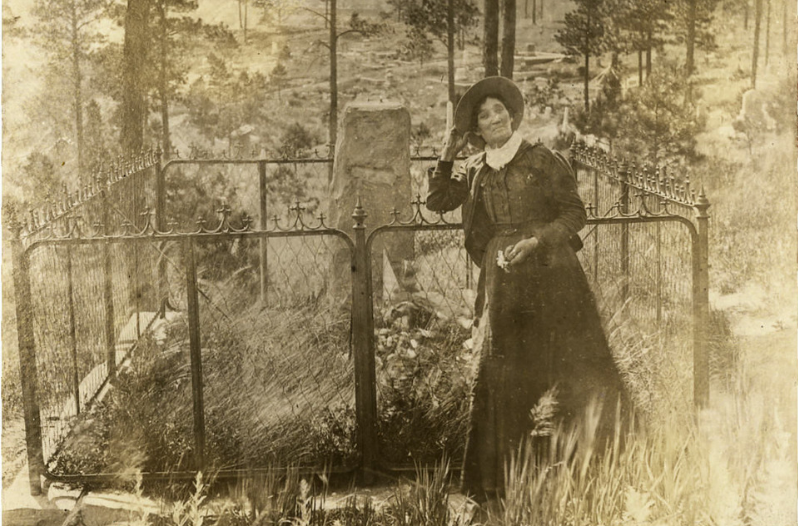
Calamity Jane at Wild Bill's grave Wikipedia
McCall dodged consequences for the murder at first, claiming that Hickok had killed his brother (which was a lie). Eventually, the law caught up with him, and he was hanged a year later.
Since that infamous poker game, Hickok became a legendary gunfighter of the Old West. While accounts are certainly exaggerated and he only killed around 6 or 7 men in duels, his name will never be forgotten.
Now Watch: Country Songs About Whiskey
https://rumble.com/embed/u7gve.v3xjxd/
